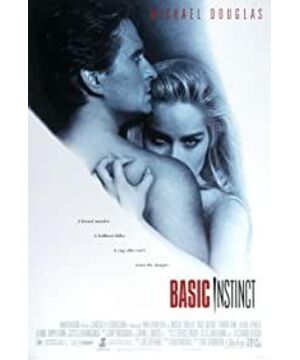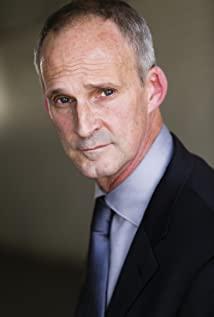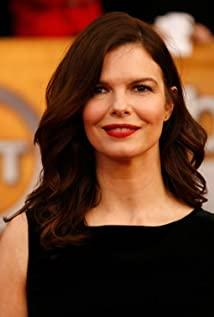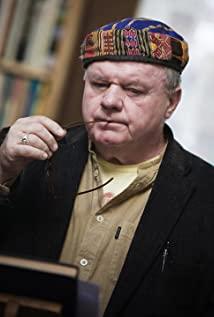But I don't know if there are men who see it in a cold sweat? Although the director is Paul Van Herwen, a male director who is good at playing with sex and violence, it is interesting that many symbols in the film vaguely reveal extreme feminist tendencies.
Dangerous Sex, Addiction and Death
takes place between the bottom of the bed in the first five minutes of the film. A pair of men and women having sex is projected on the circular mirror on the bed. At the climax, the blond woman tied the man's hands to the head of the bed, took out an ice pick from behind, and stabbed the man's body continuously, blood splashing everywhere.
The murder leads police officer Nick (Michael Douglas) to writer Catherine (Sharon Stone), who is Katherine's boyfriend. Nick discovers that Catherine has a special attraction for him—not just the natural attraction of females to males, but a rare resemblance, a deadly resemblance.
A previous episode: Prior to this case, Nick had been convicted of manslaughtering two tourists. In other words, Nick had killed someone, and he thought that only he knew in his heart: maybe, this was not a "manslaughter", he actually enjoyed the moment when the trigger was pulled, the thrill of killing - until Catherine appeared. Nick finds them so similar: no motive to kill, cheating a polygraph, just wondering if he can escape the law.
There is no motive to kill, no data to back it up, and the logic of modern criminology simply doesn't apply to them. They are dangerous lunatics, demons and murderers. They are destined to have sex. The game of chess is good against opponents.
Smoking is an addiction, sex is an addiction, and killing, too.
Japanese erotic novel master Junichi Watanabe likes to explore the delicate relationship between sex and death, as can be seen in his masterpiece "Paradise Lost". Many literary writers also often compare the pleasure of orgasm to "the feeling of near-death". This film pushes this metaphor to the extreme: it is sex that makes men experience the thrill of being immortal, and it is sex that makes them die. Spit out blood, red is a symbol of sexual desire. Dangerous sex, like a cautionary fable.
Fiction and Reality, Confession and Disguise,
heroine Katherine is majoring in literature and psychology at Berkeley. Literature is an aspect of "fictional reality", and psychology is an interpretation of "existing reality". This woman is a rose with thorns, like a mystery.
The whole case was described in her last novel, which became the best proof that she escaped conviction. From childhood to adulthood, everything that happened to her seemed to be rehearsed in her novels. Is literature a delayed reflection of reality or an advance prediction? Is psychology used to analyze criminals or used by criminals? Virtual and reality are beginning to confuse, and people are panicking.
The police, or "SHOOTER" intuition tells Nick that Katherine is the real murderer. However, any rational proof and logical judgment cannot convict her. Reason or intuition, which one should you follow?
Catherine wins in her candor. Her profession is to build a "virtual reality", and then turn this "virtual" into "existence". There is no difference between fiction and reality in her mind. Novelists are liars. So she is not afraid of the lie detector at all.
In addition, the movie is also a "virtual reality", and the "virtual" and "real" inside and outside the play are intertwined, giving this film another flavor.
No one I want to see will forget one thing: Katherine is a woman who doesn't wear underwear, wherever she goes. This is not only a hint of "sex", but also a symbol of frankness and openness. Unlike Nick, as a police officer, Nick, who always wears a suit and tie, always has rules to abide by and his identity to take into account, even if what he does is contrary to his heart and nature.
In the Bible, Adam and Eve, who ate the forbidden fruit, covered their genitals because they felt "ashamed" and were expelled from the Garden of Eden. Therefore, shame has become the first feeling of "consciousness". "Shame" brought a series of shackles that imprisoned and restrained natural desires: responsibility, morality, law, conscience... People began to live with masks. "Husbands", "fathers", "police officers" and "citizens" regulate people's behavior layer by layer, like invisible leads, and people become "roles" performed according to "scripts" on the social stage.
And Catherine, abandoned the first feeling of "shame". She candidly exposes her private parts and is not ashamed. This character has surpassed "human beings" to a certain extent, but is "devil". How can the morals and laws of the world restrain her?
Voyeurs and sharp weapons,
two types of murder weapons appear in the inverted gender film: ice picks (sharp weapons) and pistols. What they both have in common is that the way to kill is to insert or embed (in short, into) the victim's body. How similar is this to the nature of certain human behaviors. However, this time, the woman stood aloft and shot the knife or bullet into the man's body in a posture of dominating the world. The giver is a woman, the receiver becomes a man.
After the "manslaughter" incident, Nick was called a "SHOOTER" by others. This English has another meaning, the same as FUCKER. This is Katherine (the woman) sneering and sarcastic about Nick (the man).
Is Katherine gay? She has a regular female partner Rosie. Catherine also has an older woman, Heather, who is a suspected sexual partner. Rosie and Heather have one thing in common: they are both murderers. Rossi killed his two younger brothers with his father's razor because his parents were patriarchal. Heather killed her husband and three children with a wedding gift knife. This seems to be the most explicit symbol of "feminism": women's rebellion and revenge against social stereotypes and the constraints of marriage.
Perhaps, this is a way of explaining Katherine's motive for killing: the revenge of women. Catherine has blonde hair and big breasts. In the Western cultural system, "blond hair" always seems to be associated with "big boobs and no brains". Deliberately setting Katherine's blonde hair seems to want to add all the "sexy" and "tempting" qualities of women to this one woman. What Catherine did, however, did not conform to the female stereotype, but was subversive. If the male instinct is sexual impulse, then in the discourse of this film, the female instinct is revenge and conquest.
Possibly, all women have an indescribable affection for other women, which is different from that between men and women. No one knows a woman's body and mind better than a woman, so it can't be said that all women are gay, but there is an emotion that is difficult to understand and extremely jealous of the opposite sex. Catherine and Nick's ex-girlfriend Beth are college classmates. The truth of the incident slowly emerged: Beth had slept with Katherine once. But then, testimony from both sides began to contradict each other: They both said the other was obsessed with and imitated themselves. Girls who have had girlfriends should understand this feeling: good friends will always imitate each other unconsciously. This detail also seems to suggest the complex intimate but hostile relationship between women and the same sex.
But it would be a big mistake to say that the director is a feminist or something. On the contrary, I feel that the film finally brings the tone back to the mainstream values, the values of the patriarchal society.
Catherine likes to have Rosie peeping on the side when she's doing things with men. "Voyeur" has always been a symbol that movies like to use - because watching a movie itself is a grand collective voyeur.
Murder, sharp weapons, voyeurism—did you think of anything—yes, Hitchcock, Psycho.
Coincidentally, in this film, Sharon Stone wears various fashions in the same order as Jim Novak in Hitchcock's famous film "Vertigo". Although there is no lack of utilitarian mentality as a judge for the competition, there are also insinuations from the director.
Hitchcock is a famous "women-hating" film master. Blonde beauty is also the most frequent image in his films. This seems to imply that men subconsciously "objectify" women, despise or even hate women, but again and again cannot resist the temptation of lust.
In the end, Katherine killed Nick's good buddy Gus and ex-girlfriend Beth, and hugged Nick again. The last part of the conversation between the two is interesting:
Catherine: What do we do next?
Nick: Like a pair of mice, love each other, have a lot of kids, and live happily ever after.
Catherine: I don't like children.
Nick: It's like a pair of teachers who love each other, don't have children, and live happily ever after.
Catherine dropped the ice pick under the bed and turned to hug Nick for a kiss.
Saying it was "love" that saved Nick is a cliché, but that's what the film suggests. Men and women stopped the war, gave each other a step, compromised with each other, hugged and kissed, and they were happy forever. This is what the director wants to convey: even if a vengeful woman is dangerous, she will back down in the face of love. Feminism and patriarchy are both extreme approaches, and perhaps only compromise is the perfect ending.
All in all, sex and violence are the hallmarks of Hollywood commercials. And when sex and suspense are perfectly combined, I'll admit, even thinking in the upper body, it's a really good movie.
View more about Basic Instinct reviews











